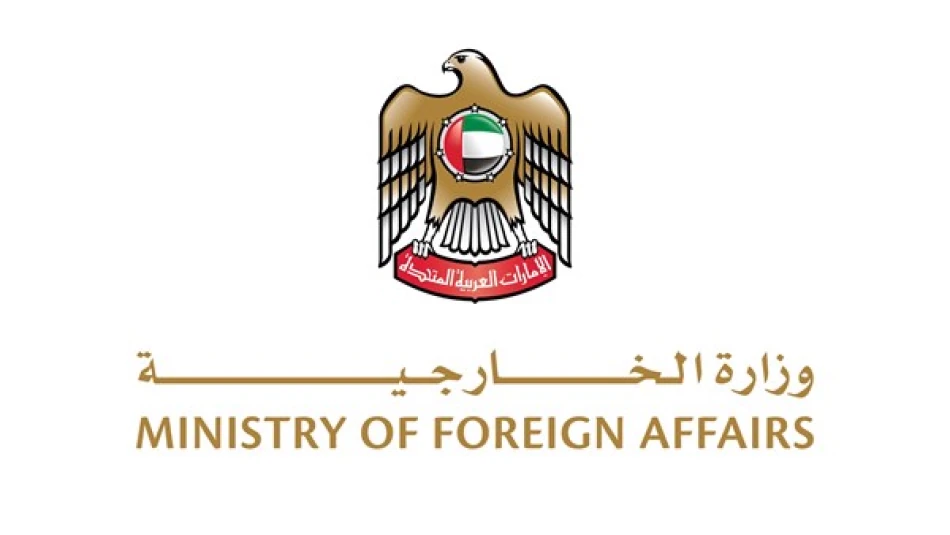
UAE Condemns Deadly Terrorist Attack on Military Convoy in Pakistan
UAE Condemns Deadly Terrorist Attack on Pakistani Security Forces Amid Regional Instability
The United Arab Emirates has issued a strong condemnation of a terrorist attack that killed multiple Pakistani security personnel in the country's volatile northwest, underscoring the Gulf nation's growing diplomatic engagement in South Asian security matters as regional terrorism threats persist.
Attack Details and Immediate Response
The assault targeted a convoy of Pakistani army and border guard forces in northwestern Pakistan, resulting in casualties among security personnel. The UAE's Ministry of Foreign Affairs released an official statement expressing "severe condemnation" of the terrorist act and reaffirming the Emirates' consistent rejection of all forms of violence and terrorism that threaten regional security and stability.
The ministry extended condolences to the victims' families and to the Pakistani government and people, emphasizing the friendly relations between the two nations.
Strategic Implications for Regional Security
Pakistan's Ongoing Security Challenges
Northwestern Pakistan, particularly areas bordering Afghanistan, has experienced a resurgence of militant activity since the Taliban's return to power in Afghanistan in 2021. The Tehrik-e-Taliban Pakistan (TTP) and other extremist groups have intensified attacks on Pakistani security forces, capitalizing on the changed dynamics across the border.
This latest incident reflects the persistent security vacuum that has allowed terrorist organizations to regroup and launch coordinated attacks against state institutions, despite Pakistan's decades-long counterterrorism efforts.
UAE's Expanding Diplomatic Footprint
The UAE's swift condemnation signals its broader strategy of positioning itself as a stabilizing force in regional conflicts beyond the immediate Gulf sphere. Unlike traditional Gulf responses that often focused primarily on Arab affairs, the Emirates has increasingly engaged with South Asian security issues as part of its evolving foreign policy under Crown Prince Mohammed bin Zayed.
This approach mirrors similar UAE diplomatic interventions in conflicts across Africa and Asia, where Abu Dhabi seeks to project influence through humanitarian aid, economic partnerships, and security cooperation agreements.
Economic and Investment Considerations
Pakistan's deteriorating security situation poses significant challenges for international investors and regional economic integration projects. The China-Pakistan Economic Corridor (CPEC), a flagship Belt and Road Initiative project worth over $60 billion, has faced repeated disruptions due to terrorist attacks targeting Chinese workers and Pakistani security forces.
For Gulf investors, including UAE sovereign wealth funds that have shown interest in Pakistani markets, persistent terrorism threatens the viability of long-term infrastructure and energy investments. The UAE's public stance may reflect concerns about protecting existing investments while signaling support for Pakistan's counterterrorism efforts.
Regional Context and Broader Implications
The attack occurs amid heightened regional tensions following the Taliban's consolidation of power in Afghanistan and the subsequent spillover effects across the region. Pakistan faces pressure from multiple fronts: managing its complex relationship with the Afghan Taliban while combating domestic militant groups that oppose Islamabad's policies.
The UAE's condemnation also reflects broader Gulf concerns about terrorism's potential to disrupt trade routes and energy security. As Gulf states diversify their economies away from oil dependency, stable partnerships with South Asian nations become increasingly crucial for their long-term economic strategies.
This diplomatic response demonstrates how contemporary terrorism in one region immediately draws international attention and concern, particularly from nations with significant economic and strategic interests at stake. The UAE's statement, while ceremonial in nature, reinforces the interconnected nature of modern security challenges that transcend traditional geographical boundaries.
Most Viewed News

 Layla Al Mansoori
Layla Al Mansoori






